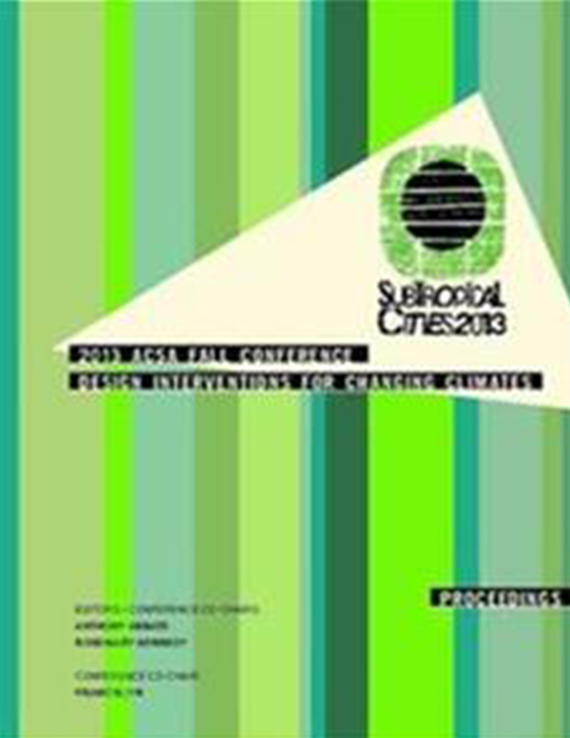Author(s): Brad Deal
“If you want to teach people a new way of thinking, don’t bother trying to teach them. Instead, give them a tool, the use of which will lead to new ways of thinking.” – Buckminster FullerSustainable design has for many years been high on the list of critical issues that schools of architecture across the globe have sought to emphasize and integrate into their curricula. Once treated as a specialized topic within the field, it is now ubiquitous. Unfortunately many undergraduate students equate sustainable design with checklist or another because those are the tools they encounter first when reading about projects lauded for their environmental achievements. Checklists offer an array of strategies, but often the logic behind them is buried deeper than students are willing to look. For most designers espousing sustainability, global warming and its threats to future generations are a universally shared motivation. The concerns of climate change however are typically not expressed in the vague moral sensibility of students with a fleeting interest, they are assumed as common knowledge among like-minded individuals, considered beyond the scope of a given situation, or similarly marginalized for various reasons. These conditions highlight a need among students for an earlier introduction to both the larger issues that give weight to sustainable design practices as well as more versatile and informative metrics to inform design decisions.Responding to this observation, an elective seminar course offered to third year architecture students in the winter of 2012/2013 at Louisiana Tech University introduced building energy modeling as both a gateway to understanding the larger issues of climate change and simultaneously as a tangible resource for evaluating the energy implications of design decisions. Reflecting on the pedagogy, methods and student work of this seminar, it is the intent of this paper to identify the challenges and opportunities presented by the early introduction of these specialized topics often reserved for graduate level courses.
Volume Editors
Anthony Abbate, Francis Lyn & Rosemary Kennedy
ISBN
978-0-935502-90-9

 Study Architecture
Study Architecture  ProPEL
ProPEL 
